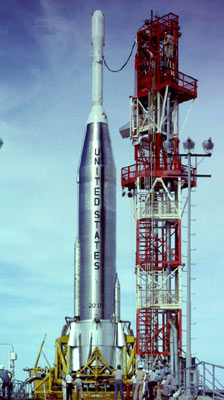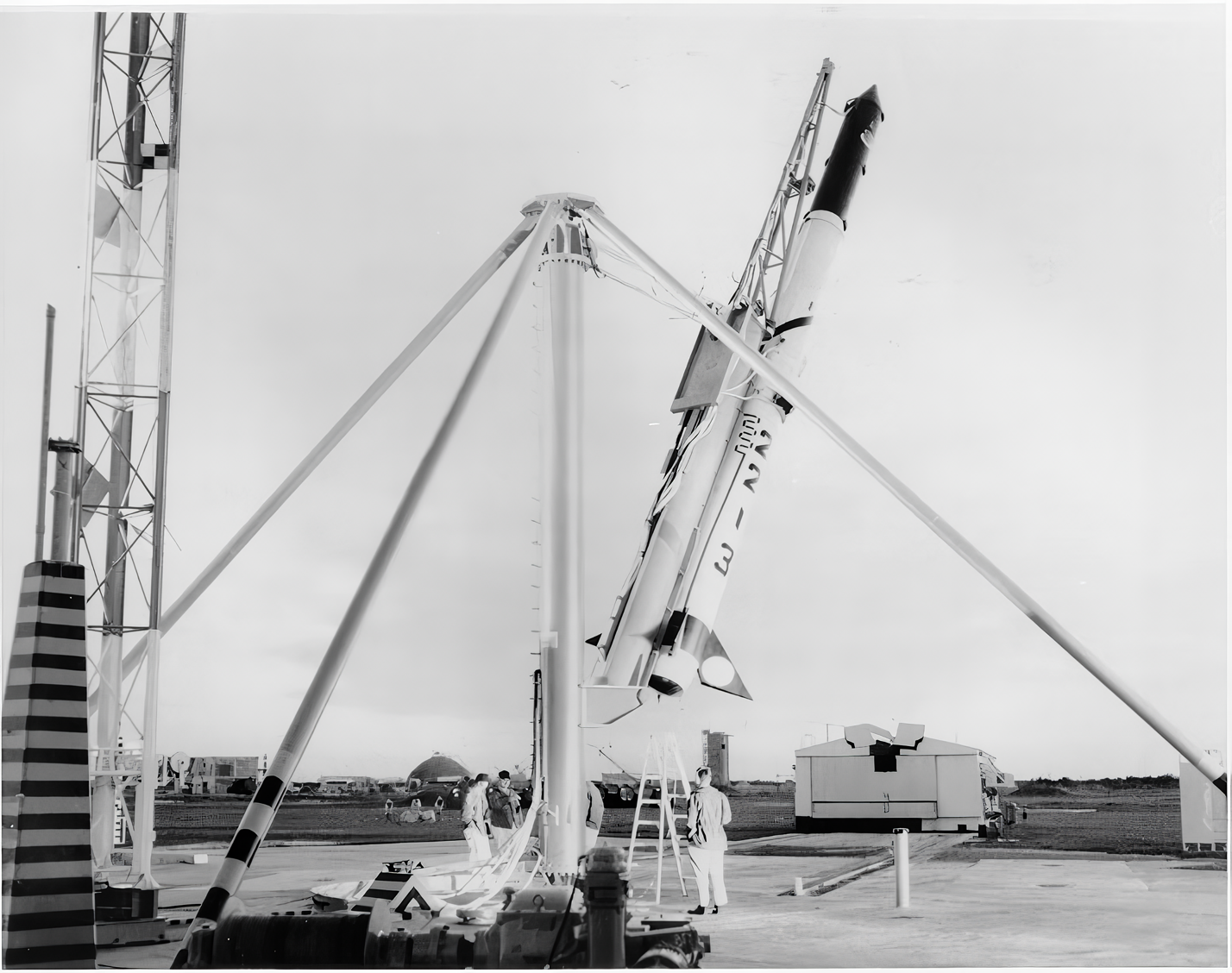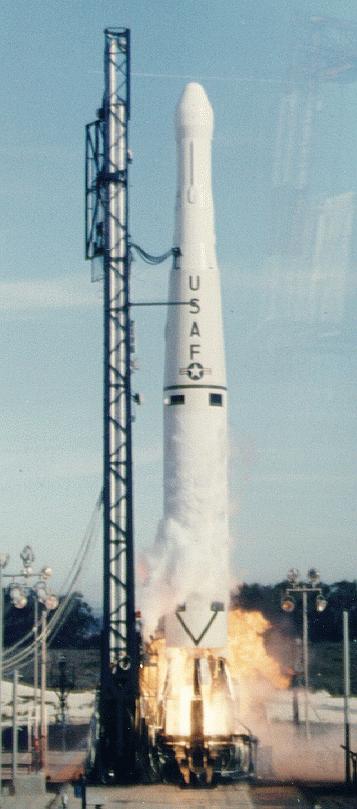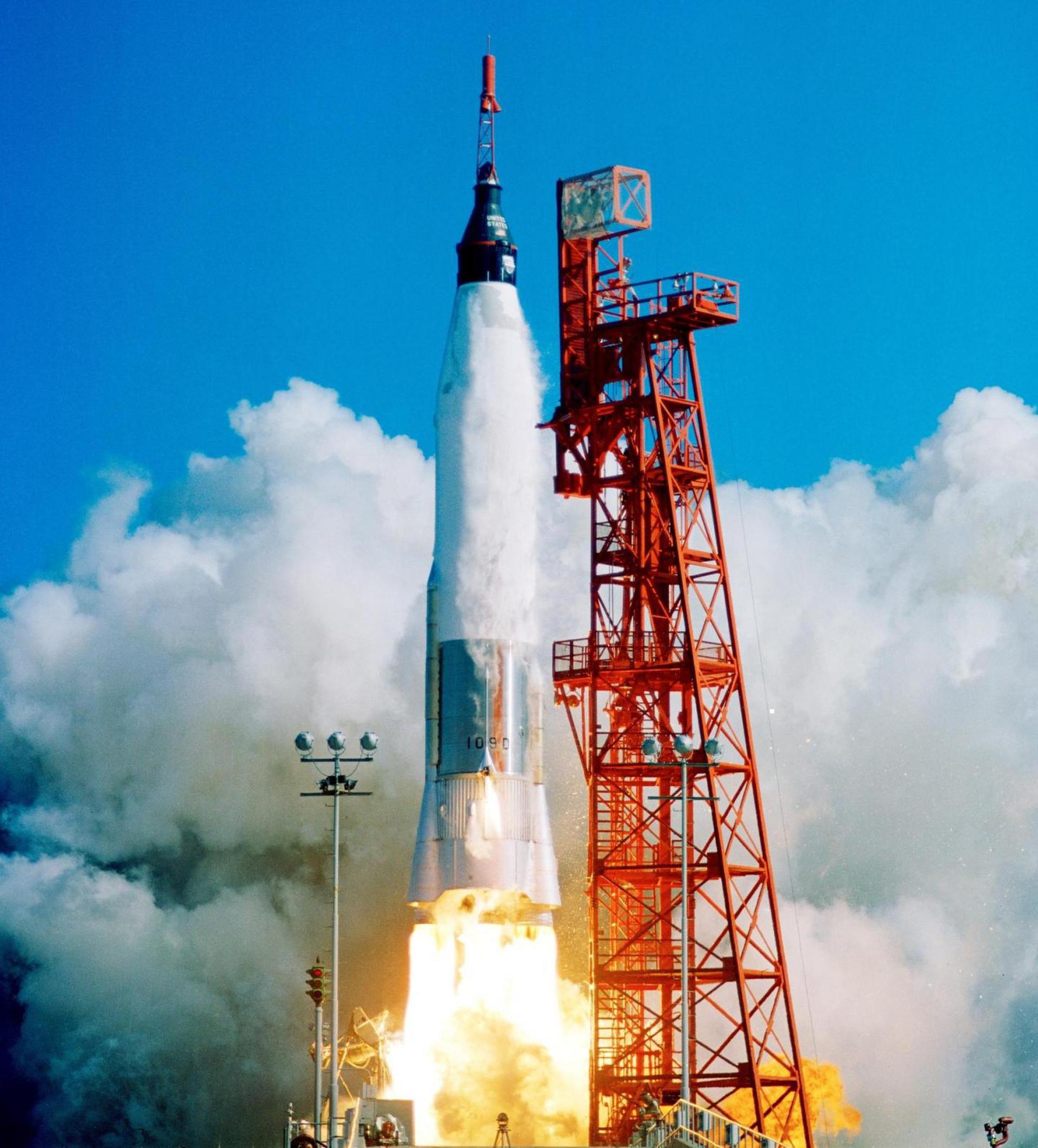Previous Spaceflight Launches
Filter by Agency, Locations or Vehicles
Show All LaunchesAtlas-Able | P-30 (Able VA)
Convair | United States of AmericaCape Canaveral, FL, USA
Sept. 25, 1960, 3:13 p.m.
Blue Scout Jr | Blue Scout D-1
Vought | United States of AmericaCape Canaveral, FL, USA
Sept. 21, 1960, 1:01 p.m.
Thor Agena A | Discoverer 15
McDonnell Douglas | United States of AmericaVandenberg SFB, CA, USA
Sept. 13, 1960, 10:13 p.m.
Vostok 8K72 | Korabl'-Sputnik-2
RKK Energiya | RussiaBaikonur Cosmodrome, Republic of Kazakhstan
Aug. 19, 1960, 8:44 a.m.
Thor DM-21 Ablestar | Courier 1A
United States Air Force | United States of AmericaCape Canaveral, FL, USA
Aug. 18, 1960, 7:58 p.m.
Thor Agena A | Discoverer 14
McDonnell Douglas | United States of AmericaVandenberg SFB, CA, USA
Aug. 18, 1960, 7:57 p.m.
Thor Delta | Echo 1
McDonnell Douglas | United States of AmericaCape Canaveral, FL, USA
Aug. 12, 1960, 9:39 a.m.
Status: Launch Successful
Mission:
The Echo 1A spacecraft was a 30.48 m diameter balloon of mylar polyester film 0.0127 mm thick. The spacecraft was designed as a passive communications reflector for transcontinental and intercontinental telephone (voice), radio, and television signals. It had 107.9 MHz beacon transmitters for telemetry purposes. These transmitters were powered by five nickel-cadmium batteries that were charged by 70 solar cells mounted on the balloon. Because of the large area-to-mass ratio of the spacecraft, data for the calculation of atmospheric density and solar pressure could be acquired. The spacecraft was also used to evaluate the technical feasibility of satellite triangulation during the latter portion of its life. Echo 1 failed during the coast period after launch, as the attitude control jets on the second stage failed and the spacecraft did not achieve orbit. Echo 1A was a successful relaunch.
Elliptical OrbitThor Agena A | Discoverer 13
McDonnell Douglas | United States of AmericaVandenberg SFB, CA, USA
Aug. 10, 1960, 8:37 p.m.
Status: Launch Successful
Mission:
Discoverer 13 was an American optical reconnaissance satellite. The lastof five test flights of the Corona KH-1 spy satellite series. It was the first fully successfuly flight of the Discoverer series. It successfuly jetissoned its payload which was recovered in the Ocean by the Navy.
Low Earth OrbitAtlas LV-3B | Mercury-Atlas 1
National Aeronautics and Space Administration | United States of AmericaCape Canaveral, FL, USA
July 29, 1960, 1:13 p.m.
Status: Launch Failure
Mission:
Mercury-Atlas 1 (MA-1) was the first attempt to launch a Mercury capsule and occurred on July 29, 1960 at Cape Canaveral, Florida. The spacecraft was unmanned and carried no launch escape system. The Atlas rocket suffered a structural failure 58 seconds after launch at an altitude of approximately 30,000 feet (9.1 km) and 11,000 feet (3.4 km) down range.
SuborbitalVostok 8K72 | Korabl-Sputnik (2)
RKK Energiya | RussiaBaikonur Cosmodrome, Republic of Kazakhstan
July 28, 1960, 9:31 a.m.






